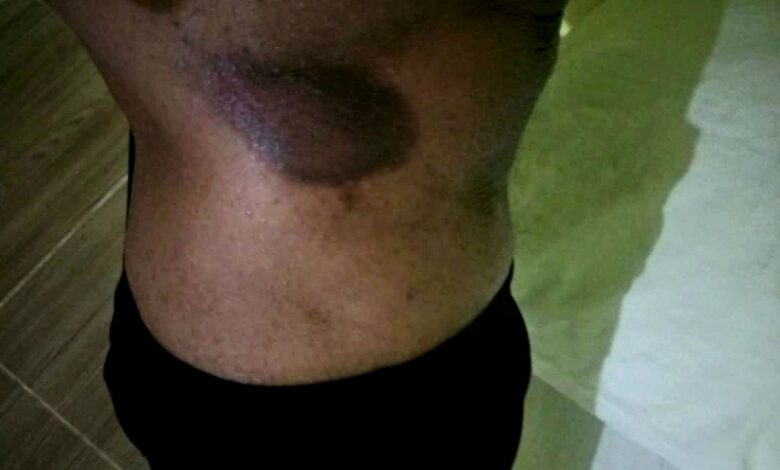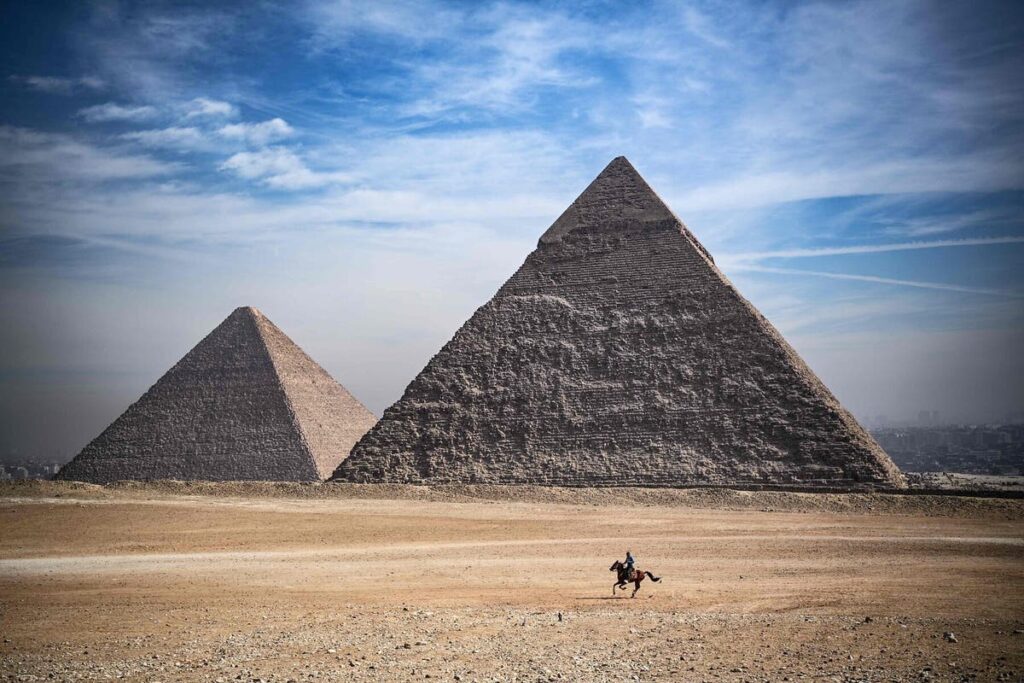Nigerian Trafficking Victim Lured by Dubai Job Offer, Stranded in Egypt
HumAngle highlights the plights of a young Nigerian who claims to have got a job offer to work as a housemaid in Dubai but was deceived to Cairo by her agent. The young lady has been sold into slavery and is currently stranded in Egypt.

When Micheal Chigozie got her ticket to a new life abroad, she was filled with hope. Her dream destination was Dubai, the most populous city in the United Arab Emirates, and she had confided this to her agent. This agent promised her a haven of prosperity and possibility.
With his assurance, she envisioned a life free from Lagos traffic, where she had been moulding and selling doughnuts to support her family in Nigeria. With five people crammed into a small apartment, Chigozie’s family struggled to survive. With her electrician father out of work, her mother’s fruit business barely paid their bills.
However, a lifeline emerged when Chigozie’s hairstylist introduced her to a distant relative abroad.
“My hairdresser told me she has a relative living abroad and that the person could help me. When I spoke with him on the phone, he said all I needed at the time was an international passport, explaining he had helped several people to secure jobs in their dream country,” Chigozie told HumAngle on the phone.
After processing her international passport and sending it to the agent, she received a phone call that changed things in March 2023. “We are set. I’ve got you a housekeeping job in Dubai. Get your things ready before the month ends,” the agent told her.
Chigozie informed her parents about the silent moves she’s been making to improve their family’s welfare and got their blessing. Her agent’s instructions were clear: “Meet fellow travellers bound for Dubai on March 20, 2023”, and she did as instructed.
By March 23, their journey took a dark turn as they were smuggled out of Nigeria with seven-week tourist visas and return tickets to Cairo, the capital of Egypt.
“I really did not have any conversation with the people I met in Abuja because the agent told me we were going to different destinations. Also, I did not have formal education so I could hardly read what was written on the tickets and my travel documents. The agent was already waiting for us at the airport before we landed, and he took all of us to his residence,” Chigozie explained.
‘A mysterious destination’
Chigozie was trapped in Egypt, far from the Dubai she had dreamed of. For weeks, she was confined to an apartment at the agent’s mercy with her passport and other documents seized. Each time she pleaded to step out, her agent replied, “Wait for your Madam’s instructions. I will take you to the villa where you will work as a maid as soon as they call for you.”
“I saw many bags in the house, and he told me that most of the people who owned the luggage were at work and only visited on holidays. He was giving me food and everything I needed but was always reminding me that he would be the one to receive my salary for a year and seven months to cover my travel expenses, and I agreed,” Chigozie added.
As days turned into weeks, Chigozie’s desperation grew. When she demanded to leave the apartment, the agent offered her a babysitting job. Upon arriving at her new workplace, Chigozie was hit with the devastating truth: “You are in Egypt, not Dubai,” her boss revealed. Though she cried profusely, it was too late to turn back, and she was forced to accept her fate.
Beyond the Pyramids
Chigozie’s story is one of the many heart-wrenching testimonies of young Nigerians trapped in the web of human trafficking crisis in Cairo. While Egypt is famous for its pyramids—tourist attractions that have long captivated the imagination of millions—it is also home to many illegal domestic workers, or Chagala, who live with their employers, performing tasks such as cooking, cleaning, and babysitting.

We previously reported on the plight of Nigerians trafficked to Egypt, where they are often subjected to forced labour, working up to 20 hours a day without adequate pay. Some of the victims were rescued through a collaboration between HumAngle and the National Agency for the Prohibition of Trafficking in Persons (NAPTIP).
Despite earning 6,500 EGP (₦343,000/$210) monthly, Chigozie’s agent was paying her just 300 EGP (₦15,000/$9.71) for her upkeep, making it challenging to take care of herself or send money to her parents in Nigeria. She added that the stipend she was being paid from her monthly salary was not commensurate with the services she rendered. Even when she’s sick, she hardly gets money to get drugs.
“I still call my friends and people I worked for in Nigeria to send me money to meet my needs in Cairo. I have had to quit my jobs on several occasions because my bosses keep treating me like a slave. Cairo housemaids are suffering and living in terrible conditions,” Chigozie told HumAngle. “After falling sick repeatedly and telling the madam I was working for. She advised me that I should get my passport from the agent so that I can visit the proper hospital.”
Beaten to stupor
When Chigozie went to the agent’s residence to explain her situation and ask for help, he accused her of attempting to escape. What followed was a violent confrontation. The agent brutally beat her to the brink of unconsciousness.

“He beat me to stupor, and I was brutally left shattered, physically and emotionally,” she explained. After the assault, the agent disconnected her phone’s WiFi, plunging Chigozie into digital darkness and isolating her from the outside world many days after the incident.
“The agent has sold me to another trafficker who appears a bit caring and more considerate, but I want to return to Nigeria. I’m tired of suffering here,” she added.
Back home, her parents weep upon hearing of their daughter’s tribulations, yet they do not have the financial means to help her.
Micheal Chigozie, a Nigerian, pursued dreams of working in Dubai but ended up trapped in Egypt due to human trafficking. Initially, her agent promised a job in Dubai, but she found herself in Egypt with her documents seized, confined, and misled into believing she would soon work as a maid.
Eventually forced into domestic labor in Cairo under harsh conditions and inadequate pay, Chigozie struggled with financial and health difficulties.
Despite being promised earnings of 6,500 EGP monthly, her agent left her with only 300 EGP, barely allowing her to survive. When confrontations with her agent over these issues occurred, they turned violent, leaving her physically and emotionally battered.
Despite being transferred to a slightly better situation, Chigozie remains keen to return to Nigeria, but her family lacks the resources to aid her escape.
The story highlights the broader crisis of Nigerian women trafficked and exploited in Egypt.
Support Our Journalism
There are millions of ordinary people affected by conflict in Africa whose stories are missing in the mainstream media. HumAngle is determined to tell those challenging and under-reported stories, hoping that the people impacted by these conflicts will find the safety and security they deserve.
To ensure that we continue to provide public service coverage, we have a small favour to ask you. We want you to be part of our journalistic endeavour by contributing a token to us.
Your donation will further promote a robust, free, and independent media.
Donate HereStay Closer To The Stories That Matter




